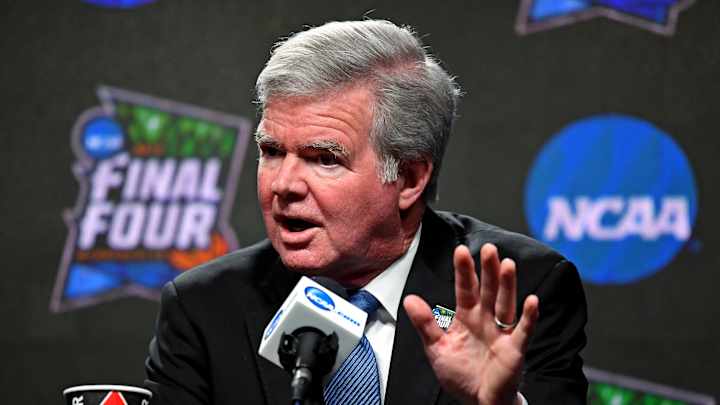NCAA medical advisors don't think fall sports should be played

Maybe the Pac-12 and the Big Ten made the correct decision to postpone all athletic activities for the remainder of the 2020 calendar year.
According to multiple NCAA medical advisors — Carlos del Rio, Dr. Brian Hainline, Dr. Colleen Kraft and Dr. Jonathan Kim — the Pac-12 and the Big Ten did indeed make the correct decision to postpone college sports due to multiple issues regarding the coronavirus pandemic.
Del Rio, who is an executive associate dean at Emory University and serves on an NCAA COVID-19 advisory panel, believes that states throughout the country and recording higher than expected positive tests. This makes returning safely to competition very difficult.
"I feel like the Titanic. We have hit the iceberg, and we're trying to make decisions of what time should we have the band play," Del Rio said in a video conference on Thursday. "We need to focus on what's important. What's important right now is we need to control this virus. Not having fall sports this year, in controlling this virus, would be to me the No. 1 priority."
Kim, a sports cardiologist at Emory and a member of the ACC Sports/Exercise Council, believes that cardiac injuries — and more specifically myocarditis — are at the forefront of the concerns the medical advisors have.
According to medical professionals, myocarditis is a potential longterm effect from contracting COVID-19. The American Heart Association describes myocarditis as it "comes on suddenly and often with significant severity, resulting in an exceptionally high risk of death caused by cardiogenic shock (the heart's inability to pump enough blood), fatal arrhythmias (abnormal heartbeats) and multiorgan failure."
"When we diagnose myocarditis in athletes, what we recommend is a minimum of three months of no high-end physical training," Kim said. "The recommendation is rest, at a minimum of three months up to six months. At that time, based on the clinical presentation, the athlete would undergo a series of repeat testing, which would include imaging, exercise testing, monitoring looking at heart rhythm and potentially other tests. If all of those tests are normal, then the athlete would be allowed back to return to play."
According to Kim, there have been multiple studies regarding patients who've contracted the virus and the issues during and following recovery. The studies found that 20% of all patients who've been hospitalized due to COVID-19 have suffered from some sort of cardiac injury, a number that's extremely high when it comes to thinking about a return to college athletics.
"For all intents and purposes as it relates to athletes and return to play, when we do see evidence of cardiac injury, we are treating it as if it's underlying myocarditis," Kim said. "I think where we are at present, based off of some of these case reports that are out there, I do think it affirms the need to continue to take this virus very seriously and proceed with a more conservative risk-stratification algorithm."
"We recognize this is a novel virus. There are things about this virus we have not seen before with other viruses. We must respect what we don't know and what we've seen. I do think that just with some of these reports of athletes who have publicly noted that they've had myocarditis, it affirms the need that a conservative approach for now still remains an appropriate plan."
According to Hainline, out of all the collegiate athletes who've been tested, just 1-2% have tested positive. But out of that small percentage, he knows of at least a dozen cases where the athlete contracted myocarditis, which can pose a serious risk for a sudden heart attack and potential death.
Kraft took a different approach, essentially applauding the Pac-12 and Big Ten for being courageous enough to cancel the fall sports season in face of all the doubters. She thinks that might not playing the fall, both of those conferences are putting the health and safety of the athletes first.
Want to share opinions or ask questions? We want to hear them! Making a profile is free and it only takes ~1 minute to set up. Also, be sure to like us on social media for future coverage:
Twitter — @UtahUtes_SI and Ryan Kostecka at @Ryan_Kostecka
